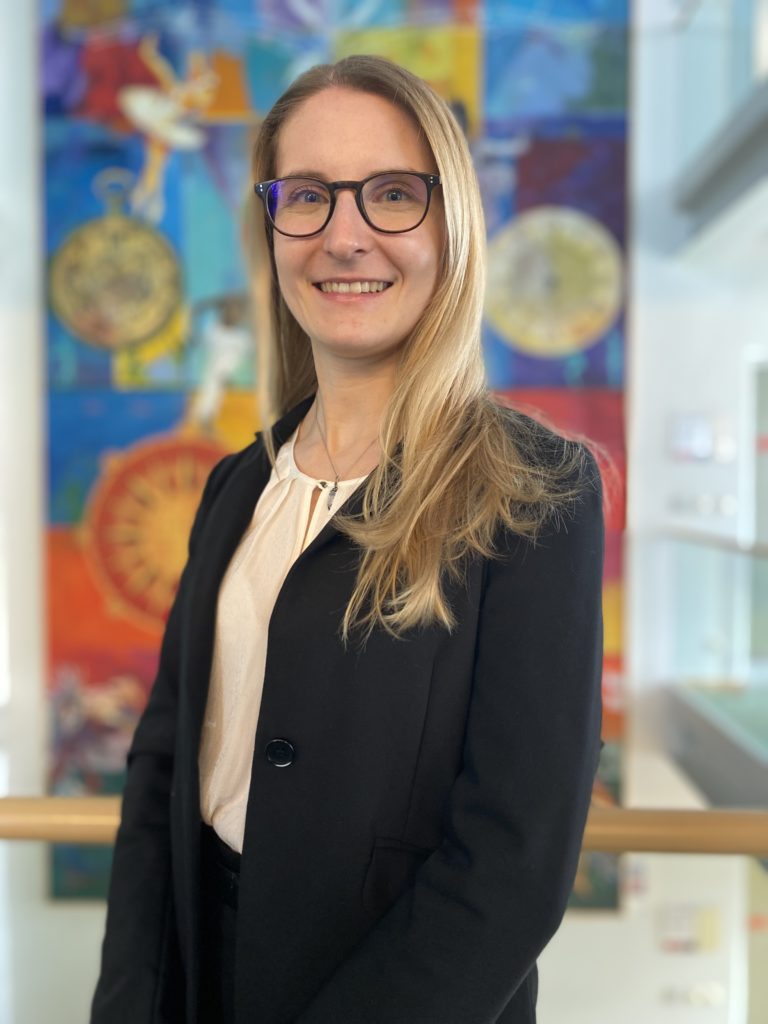Young Researchers

Young researchers shape our future. Bringing their innovative ideas into our projects, they contribute not only to the excellence of SnT research, but also to our impact in society. They take our research to the next generation.
In this edition of the series, we feature Dr. Tamara Roth and her work on decentralised digital identities. This research also contributes to the National Centre of Excellence in Financial Technologies (NCER-FT).
Dr. Tamara Roth, postdoctoral researcher at the Digital Financial Services and Cross-Organisational Digital Transformations research group (FINATRAX), gave us some insights into the project she is working on, reflected on how it will shape the future, and shared her future plans with us.
Tamara, what are you working on in your research?
Together with the Ministry of Digitalisation, our team explores the use of so-called decentralised digital identities in Luxembourg. These include digital wallets and digital credentials, i.e., digital replicas of physical identity credentials. In this project, we work on overall four use case areas within the now emerging European Digital Identity Wallet: mobile driver’s licences, electronic signatures, authentication and identification to government services and opening of bank accounts online. These use cases will be piloted at the national and cross-border level with 148 partners from 20 different countries.
What is the motivation of the project?
Even today, printed originals of official documents are needed more often than one might think. During my stay in the United States, where I was a visiting research scholar at the University of Arkansas, I had to carry several documents with me, such as my certificate of eligibility. I was surprised that there was no digital alternative, but apparently digital copies would not have satisfied the security requirements. Once uploaded to a smartphone, I could have shared, copied, or modified the documents, making it difficult to verify their authenticity. At the same time, my very sensitive information on visa and passport was relevant for various processes, including the lease of an apartment. It was odd to enter this information into online services without being 100% sure what would happen to it. Although this is a very specific example, many people are hesitant about sharing data online because they are afraid of losing control.
What is the solution proposed by the project?
Sharing data online when we want to access e-commerce or e-government services is inevitable. Especially in e-commerce, most platforms require at least our names, addresses, telephone numbers, and birthdates. We see that single-sign-on services (SSO) reduce the amount of data users need to share, but they come with other challenges. Therefore, we need an alternative that is at least as convenient, but offers more control for users over their identity data. Decentralised digital identities can be one of those alternatives. Their overarching concept is that an issuer or identity provider equips holders with electronic attestations of their identity claims. Holders can then control and store these claims in digital wallets. When needed, holders can use their digital wallet – instead of a physical wallet – and show digital credentials to a verifier or a relying party.
How does this project shape the future?
Digital credentials will be more convenient for users. Users will no longer have to carry physical identity credentials. In the future, users will also have significantly more control over their identity information. Yet, digital credentials not only hold value for users, but also for businesses. In the recruitment process, for instance, businesses can save a lot of money per employee because the verification process of documents will be easier. Digital credentials are also difficult to forge, making them even more reliable than their current paper-based counterparts. This is particularly relevant for a country like Luxembourg, where a very international workforce necessitates frequent verification of information cross-border. The project places Luxembourg at the forefront of innovation.
What inspired you to work in research at SnT?
My research on the interplay between technology innovation and users as well as on the evolution of socio-technical systems requires an environment that is interdisciplinary, applied, and ready to push boundaries. I was impressed by SnT’s close collaboration with industry partners and government agencies, which not only produces cutting-edge research but also ensures relevance of research. This empowers young researchers to actively drive change. With my own interdisciplinary background, I was thrilled to join a team where creative minds from various disciplines would add their perspectives to create real innovation. In short, the academic spirit, paired with the impression that everything is possible if one only works hard enough, inspired me to work here at SnT.
What are your future plans?
My plan is to pursue a career in academia, and I recently received a one-year assistant professor fellowship at the University of Arkansas. During this year, I will further explore how emerging technologies drive societal change and how they are shaped by discourse and cultural norms. In addition, I will try to establish a lab within our research group that introduces neuro-information systems methods to user and organisational studies. The goal of this lab is to combine studies on digital emotions, such as trust in technology, with inclusive and sustainable design approaches. We aim at leveraging the potential of emerging technologies, such as digital wallets and artificial intelligence, for organisational change and social good.
About Tamara: Dr. Tamara Roth is a postdoctoral researcher at the University of Luxembourg’s Interdisciplinary Centre for Security, Reliability, and Trust (SnT) and a visiting assistant professor at the Sam M. Walton College of Business (University of Arkansas) for the coming academic year. Her research focusses on the design and use of IT for social good, as well as the role of organisational culture and organisational sensemaking in IT management. Tamara’s work spans the individual, organisational, and societal levels. She particularly explores the management and adoption of distributed ledger technologies and the societal implications of digital identities.
This article was originally published on 10 August 2023.
